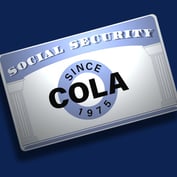When you listen to folks argue for or against things for enough years (and I’ve been doing it for many years), you start to recognize certain patterns. One pattern that I’ve come to recognize is what smart people do when they are pushing an idea that they can’t really support with either facts or logic. They either attack the people who disagree with them (usually on personal, moral or patriotic grounds), or they draw analogies to simple, everyday situations in which they maintain the solution is clear. Or both.
(Related: SEC Fiduciary Rule Cannot Replace DOL’s: Financial Planning Coalition)
The problem with either kind of argument is that they’ve shifted attention away from the original point — which is almost always a tip-off that the proponent doesn’t actually have any real facts on their side. What’s more, at least these days, when we examine the arguments themselves, we often find no factual basis for them either, just a hollow bait-and-switch.
In his May 31 ThinkAdvisor blog “Secretary Acosta, Candor and the DOL Rule,” Knut Rostad, president of the Institute for the Fiduciary Standard, offers an excellent example of this pattern, citing Gary Cohn, the new director of the president’s National Economic Council, who said: “We think [the DOL rule] is a bad rule. …It is like putting only healthy food on the menu because unhealthy food tastes good but you still shouldn’t eat it because you might die younger.”
Now, in an effort to head off the inevitable flood of comments and emails that I’m a political hack attacking anything Trump, let me say right up front that I’m a big fan of Cohn. For one thing, his story is the stuff of movies. He grew up in northeast Ohio (Go Cavs!) as I did. He went to Gilmore Academy, which was a swimming rival to my own Kent State University High School. His personal story rivals that of LeBron James — a dyslexic grandson of Polish immigrants whose parents were told that if they were really supportive, he might grow up to be a truck driver. Instead, he went on to become chairman of Goldman Sachs.
With that said, nobody’s right all the time, and Mr. Cohn is on the wrong side of the DOL rule issue, as evidenced by his “restaurant menu” analogy, which, when fully considered, actually supports the fiduciary side of the argument.








 June 06, 2017 at 02:54 PM
June 06, 2017 at 02:54 PM










